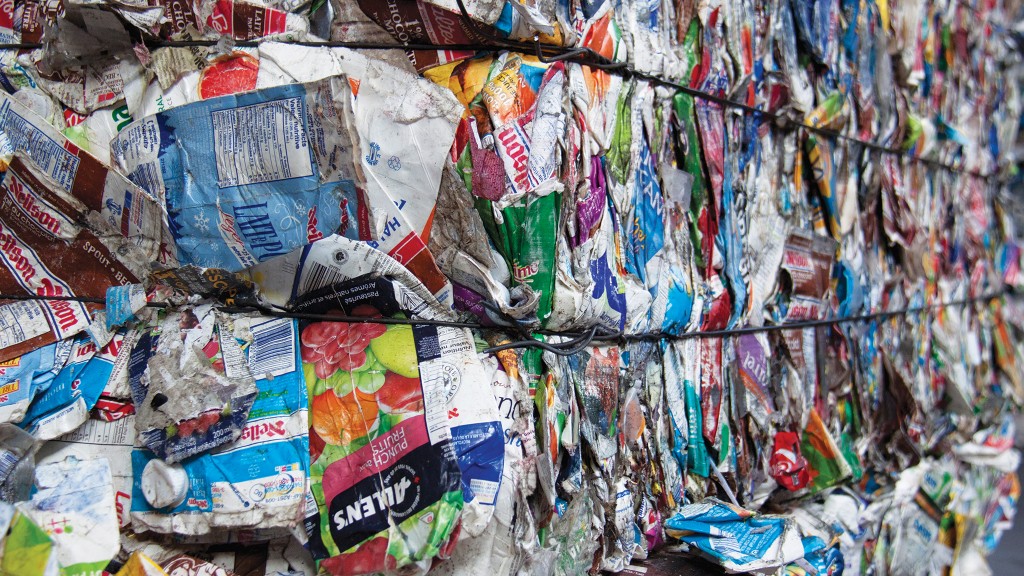EPR pioneer taking on collection of printed paper and packaging in Vancouver
Multi-Material BC continues to grow, building on 80 percent recovery rate from members
Back in November, the City of Vancouver announced that it had made a decision to transition responsibility for collection services of curbside bluebox materials to Multi-Material BC (MMBC). MMBC is now responsible for collection from single family curbside residences and multi-family buildings, with the transition for responsibility of recycling collection services to be put fully in place by the end of 2016.
This means that MMBC will take on direct responsibility for operating recycling collection services in the City of Vancouver for curbside blue box materials, consisting of printed paper and packaging (including tin, steel and plastics as well as fibre-based packaging). The City of Vancouver is still handling refuse and organic waste collection.
Since MMBC launched in May, 2014, Vancouver says it has benefited from the organization’s incentive payments to help cover the cost of providing recycling collection to residents in the City, and recently decided that it would like MMBC to fully manage this function. In a recent Council report, the City stated that although staff were initially reluctant to stop providing a city service to its residents, “MMBC has demonstrated their ability to implement recycling systems in other municipalities and have achieved high levels of recycling.”
“This decision by the City of Vancouver speaks to its confidence in MMBC to efficiently and effectively manage residential packaging and printed paper recycling,” comments Allen Langdon, managing director of MMBC. “We look forward to working on behalf of our members and with the City of Vancouver to effect a smooth transition, and continue to build on our first year’s success of recovering 80 percent of the packaging and printed paper sold in the province by our members.”
“This decision by the City of Vancouver speaks to its confidence in MMBC to efficiently and effectively manage residential packaging and printed paper recycling.”Allen Langdon, Managing Director of MMBC
The way the MMBC EPR (extended producer responsibility) model works is that waste producers (producers of products, retailers, manufacturers, quick-service restaurants and other businesses) can choose to become members and then pay fees to MMBC based on the weight of packaging materials they supply into the marketplace. MMBC takes those fees and uses them to finance recycling services in the province, in a number of communities which have partnered with the organization. Participation in the program is not obligatory, which has left some holes that still need filling, Langdon says, the most obvious example of non-participation in their program is the newspaper sector. Still, the organization’s membership is now over 1,000, and prior to the new arrangement with the City of Vancouver, MMBC has been successful at providing recycling services for multiple communities in the province, including the Cities of Langley, Coquitlam, Anmore, Revelstoke, Prince George and Quesnel, as well as the UBC University Endowment Lands, and for the Regional Districts of North Okanagan, Central Kootenay and Kootenay Boundary. In these communities, MMBC enters into contracts with service providers and oversees their operation and performance.
“We really provide two options when it comes to curbside,” says Langdon. “Municipalities that already have systems can continue to provide recycling collection services and we pay them a per household incentive, or like the City of Vancouver and 11 other communities across the province, they can turn over their services to MMBC and we’ll hire a contractor to provide that collection service. In most cases I don’t know that the citizens even notice the difference, but it does mean that the producers – the manufacturers of the packaging – are now absorbing the cost of providing recycling services and managing the end-of-life of the packaging.”
According to Langdon, in 2014 not only did MMBC collect 80 percent of the materials supplied by members, the material lists for collection were standardized across the province where MMBC operates, so that, for example, wherever a resident is located in Vancouver or elsewhere in the province, the materials collected through MMBC at curbside are the same, and the public is aware of what to throw and what not to throw.
“I think that’s important in terms of consumers being able to understand and not having to educate themselves each time they move to a different community. We also have over 200 depots that collect all curbside materials, but also collect plastic, film, glass and expanded foam, polystyrene or styrofoam. Styrofoam, especially, is something new to have for collection and so that’s an exciting development. We also launched 20 new curbside programs in our first year, including the first curbside collection program ever in Prince George, B.C.”
With respect to industrial, commercial and institutional waste management, MMBC is not currently involved, but Langdon says that transition is “simply a decision for the provincial government.”
“Our job is to focus on what we put forward in our plan, and whether the B.C. government at some point wants to expand that to commercial collection, is really their call.”
To process and market end-of-life materials collected, MMBC uses a company called Green By Nature EPR, based in New Westminster (a community adjacent to Vancouver). Currently, the bulk of their paper is being sent offshore, mainly to China and other Asian markets. But most of the plastics collected is processed in B.C.
“MMBC is about transferring the financing of collection fully onto industry and having the industry manage the waste they produce. I think that both the City of Vancouver and MMBC are committed to a seamless transition. We have already started those transitions meetings and we’ll have a steering committee and group working on that over the next 8 months. Initially, as we’ve started those meetings, we’re all committed to making that transition as seamless as possible for Vancouver residents.” RPN


